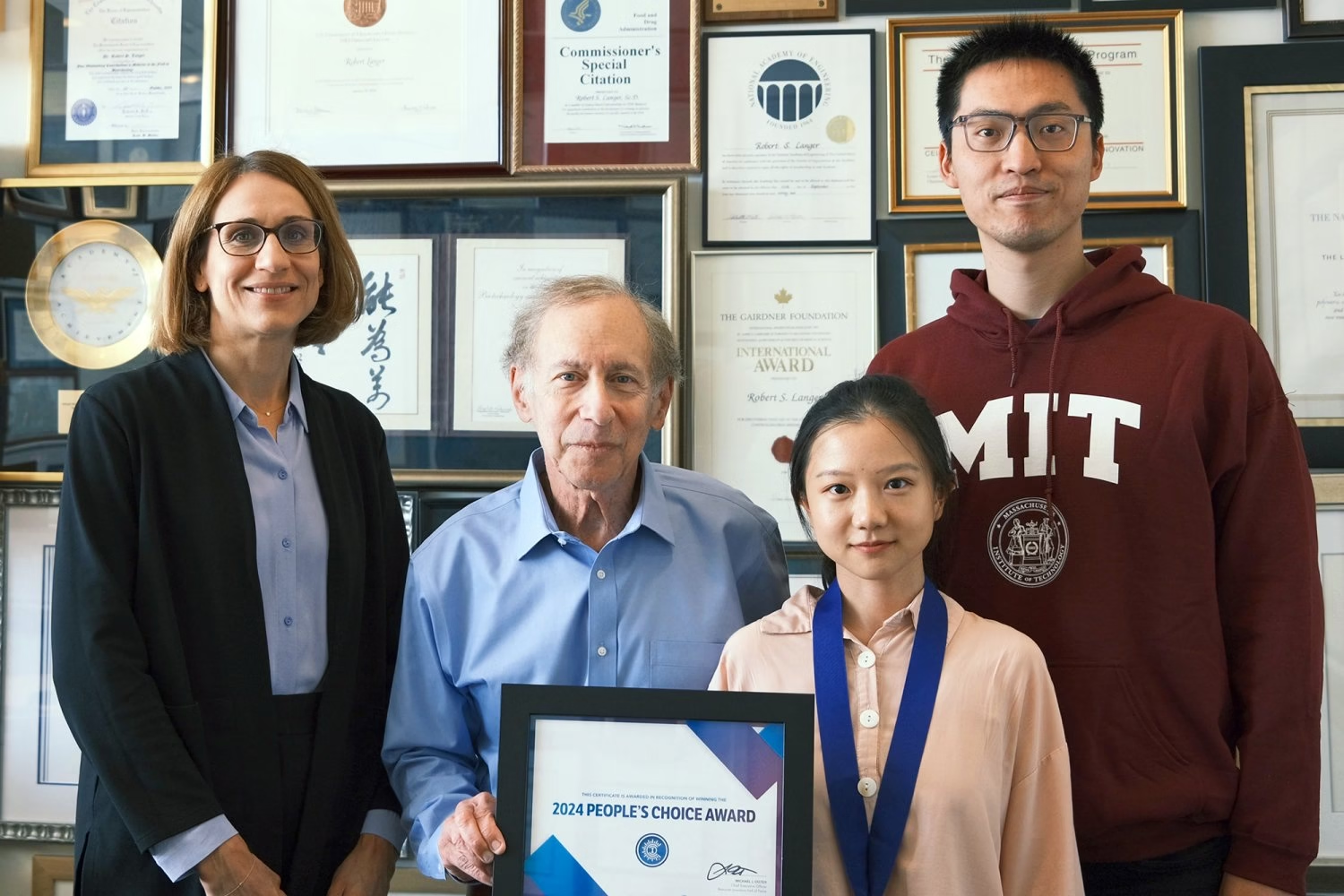MIT Doctoral Student Wins 2024 Collegiate Inventors Competition
Linzixuan (Rhoda) Zhang, a doctoral candidate in MIT’s Department of Chemical Engineering, recently secured a medal in both the Graduate and People’s Choice categories at the 2024 Collegiate Inventors Competition. Her award-winning work focuses on developing materials to stabilize nutrients in food, aiming to enhance global health.
The annual competition, hosted by the National Inventors Hall of Fame and the United States Patent and Trademark Office (USPTO), honors student inventors from colleges and universities. Finalists present their inventions to a panel of judges, including members of the National Inventors Hall of Fame and USPTO officials.
Accustomed to recognition, Zhang is a three-time recipient of the Koch Institute Image Awards in 2022, 2023, and 2024. She was also a 2022 fellow at MIT’s Abdul Latif Jameel Water and Food Systems Lab.
« Rhoda is an exceptionally dedicated and creative student. Her well-deserved award acknowledges the potential of her research on nutrient stabilization, which could significantly impact society, » says Ana Jaklenec, one of Zhang’s advisors and a principal research scientist at MIT’s Koch Institute for Integrative Cancer Research. Zhang is also advised by Professor Robert Langer of the David H. Koch Institute.
Frameworks for Global Health
In a world where nearly 2 billion people suffer from micronutrient deficiencies, including iron, finding effective solutions is more urgent than ever. Iron deficiency is particularly harmful to vulnerable populations such as children and pregnant women, as it can weaken the immune system and cause developmental delays.
The World Health Organization has highlighted food fortification as a cost-effective strategy, but many current methods fall short. Iron and other nutrients can degrade during processing or cooking, and synthetic additives often lead to high costs and environmental drawbacks.
Zhang, along with her teammate Xin Yang, a postdoctoral associate at the Koch Institute, set out to innovate nutrient fortification technologies that are effective, accessible, and sustainable. This led to the invention of organometallic nutritional frameworks (NuMOF) and the subsequent launch of MOFe Coffee, the world’s first iron-fortified coffee. NuMOF not only protect essential nutrients like iron in foods over extended periods but also make them more easily absorbed and utilized once consumed.
The inspiration for this coffee came from the success of iodized salt, which has significantly reduced iodine deficiency worldwide. Since coffee and tea are associated with low iron absorption, iron fortification directly addresses this issue.
However, replicating the success of iodized salt for iron fortification has proven challenging due to the high reactivity of the micronutrient and the instability of iron (II) salts. As researchers with backgrounds in materials science, chemistry, and food technology, Zhang and Yang leveraged their expertise to develop a solution capable of overcoming these technical hurdles.
Iron-fortified coffee serves as a practical example of how NuMOF can help people increase their iron intake by incorporating it into a habit already part of their daily routine, with potentially significant benefits for women, who are disproportionately affected by iron deficiency. The team plans to expand the technology to include additional nutrients to address a broader range of nutritional deficiencies and improve health equity globally.
Accelerating Global Health Improvements
Looking ahead, Zhang and Yang from the Jaklenec group are focusing on both commercializing their products and continuing research, refining MOFe Coffee to enhance nutrient stability while ensuring the product remains tasty and maximizes iron absorption.
Winning the CIC competition means Zhang, Yang, and the team can expedite their patent application with the USPTO. The team hopes their accelerated patent will attract more investors and potential partners, which is crucial for scaling their efforts. A faster patent process also means the team can bring the technology to market more quickly, contributing to improved nutrition and health worldwide for those who need it most.
« Our goal is to make a real difference in combating global micronutrient deficiencies, » says Zhang.



